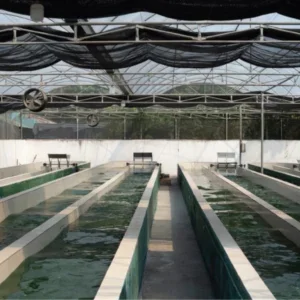When a major food producer recognises the importance of sustainability as more than simply a marketing exercise, it becomes a philosophy of working with nature rather than exploiting it. And when a company like General Mills takes a positive and committed approach to sustainability as part of its corporate culture, it not only makes good business sense, but also brings meaningful change to the lives of many farmers.
"As a food manufacturer, our basic business model is to take the output of Mother Nature and transform it in a way that suits our customers’ changing needs," says Jerry Lynch, vice-president and chief sustainability officer at General Mills. "So we are very dependent on nature and its output continuing to work well; if it doesn’t, our business model will be severely challenged.
"There is some urgency around the issue of sustainability because of what is going on in our world," he adds.
"The picture of supply and demand is changing. If there are two billion more people in the world in the next 50 years and a bigger middle class that is eating better by moving from plant protein to animal protein in their diet, then that will change the picture a lot. After all, it takes 16kg of plant protein to make 500g of meat protein."
He also points out that pressures on the supply side would exacerbate the effect of such a huge increase on the demand side of the equation.
"Around 70% of the world’s fresh water is used for agriculture, so scarcity is a big issue. There is also more deforestation each year, and many other factors that are challenging food supply. If demand is growing and supply is shrinking then that is worrying. So, sustainability is a fundamental driver of our business model. We have to conserve and protect the resources on which we depend. It is a critical focus for us when it comes to our ingredients."
General Mills is one of the world’s leading food companies, with annual sales in 2012-13 of $17.8 billion, and operates in more than 100 countries around the world. It is the name behind well-known brands such as Betty Crocker, Cheerios, Green Giant, Häagen-Dazs and Pillsbury. It was also an early mover in the world of sustainability, having been among the first companies in its sector to use recycled material in its packaging, and it appointed its first sustainability officer back in 2005. General Mills has maintained this enthusiasm in its latest initiative, a clear commitment to source ten priority ingredients sustainably by 2020 (see ‘The ten commitments’).
By announcing this initiative in September, General Mills put its money where its mouth is.
Backing words with action
The commitment General Mills is making to source key ingredients in a 100% sustainable manner is significant in many ways. Firstly, the ingredients – including cocoa, corn, palm oil, vanilla and wheat – account for a major proportion of its total raw material needs. They are also sourced from across the globe and from different types of producers, so they touch many parts of the company’s global supply chain.
Most importantly, however, the initiative is not simply paying lip service to the idea of sustainability to support a marketing drive, but is based on long-term goals of putting the company on a firm and secure footing by strengthening its supply of raw materials, while also improving the livelihoods of the farmers whose produce it buys.
In order to ensure that its efforts have maximum effect, the company has partnered with the likes of CARE, an international organisation that combats poverty and injustice in 87 countries around the world, as well as Field-to-Market: The Alliance for Sustainable Agriculture, Bonsucro, and the Nature Conservancy, to help define the right approach to implementing sustainable practices.
"We have focused on our ingredients because that is the part of the value chain that has the biggest impact," says Lynch. "Two thirds of our carbon footprint comes from the raw-materials part of the supply chain, as does 99% of our water usage. But only 8% of our carbon emissions and 1% of our water footprint come from operations that we directly own. That is why there is a focus on the sustainable sourcing of our top ten ingredients.
"We chose these priorities with the help of the World Wildlife Fund (WWF) and the Rainforest Alliance, who helped us look at where raw materials are sourced," he continues. "These ten areas represent 50% of what is sourced, and some are more challenging than others.
"The most challenging are vanilla from Madagascar and cocoa, which comes mainly from the Ivory Coast, as the infrastructure to reach the farmers is limited. Vanilla in particular is sourced from smallholder farmers, but for both these ingredients we have to do a lot of work on infrastructure and work with several layers of suppliers."
Cooperation with farmers is essential to the model, and the company is working closely with them to encourage and incentivise sustainable agriculture. It is a strategy that is already reaping rewards.
A world of difference
Steve Peterson, director of sourcing sustainability at General Mills, has seen the impact of the company’s initiative at close quarters, having travelled frequently to Madagascar and throughout Africa establishing relationships with partners and smallholder farmers. He has also experienced how the company’s strategy benefits farmers in the US.
"On our list of ten ingredients, there are two groups," he explains. "The first is commodities produced by larger farms in developed markets, and the second is the produce of smaller farms in developing economies. We want to benefit both types, so we need different approaches."
By way of example, he contrasts the needs of wheat farmers in Idaho with the needs of vanilla growers in Madagascar.
"In Idaho, we source directly from growers and we measure six key variables such as land use, soil conservation, greenhouse gas emissions and water use," he says. "We measure every year the improvement against the baseline. We didn’t want to present a checklist, but looked at outcomes because that engages growers more. We helped farmers understand how much soil is lost to wind and how much water it takes to grow a bushel of wheat. That understanding makes them more interested in new technologies and techniques.
"I’m a farmer myself, so I’ve walked in their shoes and I find it very satisfying when I see the important change happen, which is to see our change model making farmers less sceptical and see their business through the lens of sustainability."
Peterson has often witnessed what he calls the ‘light-bulb moment’, when farmers come to understand their trade in a different way. It takes, for example, 3,200gal of water to grow a bushel of wheat, and knowing this has helped farmers embrace technologies such as variable rate irrigation. This has, in many cases, prevented overwatering, leading to cost savings and increased profitability.
For a smallholder growing vanilla in Madagascar, the approach is very different, with the company looking to mitigate other factors, such as the use of child labour. The main focus, however, is to get a better return for farmers.
"In a small village in the north-west of Madagascar, we have a project that is a supplier-led effort with local Malagasy non-governmental organisations (NGOs) in which we teach the curing of vanilla beans," he remarks. "Usually, the farmers sell them green and sell them cheaply to the first collectors that come by. Curing the beans means they can keep them in the village and get more money, perhaps twice as much.
"CARE is very good at helping us identify the right approaches, which include addressing food security. Selling vanilla might keep a farmer’s family in food for six months, but a proportion of the premium for curing can help growers buy enough rice for the whole year. We are also piloting a project that puts a grain store facility in villages, which we might extend to 100% of our vanilla suppliers," he adds.
What may seem like altruism on behalf of General Mills is certainly based on respect for the producers that support its supply chain. But it is also based on sound business sense.
"We are doing this for the common good, but there is a benefit for us in that it secures our raw materials base," says Peterson. "Vanilla production, for example, is so concentrated that it could be constrained in the future and we need to protect it. There is a selfish motivation, too, but enlightened self-interest can be good for everyone."
If the right kind of self-interest can permeate more of the industry, then more meaningful change will occur.
"It is helpful if companies like ours lead the way, and it is necessary, but it is not sufficient," Lynch adds. "Take the palm oil market, for instance, where the largest buyer for commercial goods takes only 3% of total output. We buy only 0.1% of output, so you need more players in the market to act together if you want to tip the market towards making sustainability an everyday priority.
"I’ve been pleased with the responsiveness of our suppliers, who understand that sustainability is in all our best interests. For our consumers, our communication about sustainability is a way to demonstrate the quality of what we produce, but it is a bigger issue for manufacturers of larger goods like cars. In the fast-moving consumer goods space, where we are selling smaller goods, it is hard for a time-poor or cash-poor customer to think too much about sustainability. For us, it is a long-term strategic issue about sustaining our business model."





